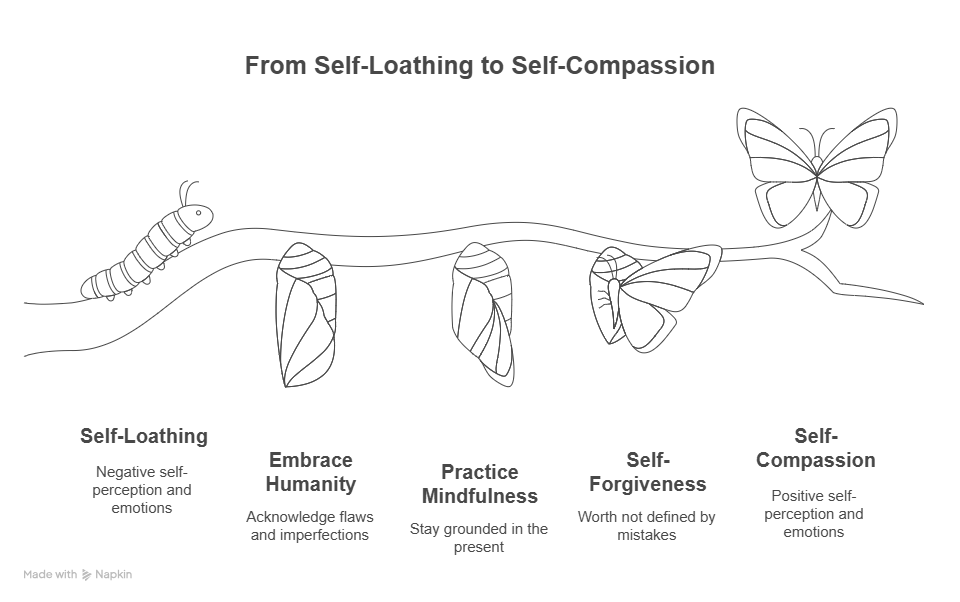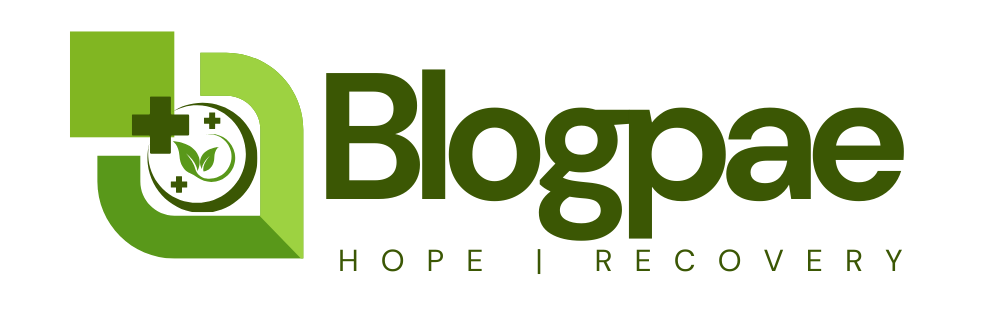Overcoming fentanyl addiction is a journey that requires more than just physical healing; it demands a spiritual transformation that touches the heart and soul. For many, this journey begins with a moment of clarity, a realization that there is a higher power in recovery that can guide them through the darkest times.
My personal journey with fentanyl recovery was not just about battling addiction; it was about discovering a new sense of purpose and meaning. It was a spiritual awakening in recovery that helped me find the strength to persevere.
Key Takeaways
- Understanding the role of spiritual transformation in fentanyl recovery
- Discovering the concept of a higher power in the recovery process
- Personal stories of overcoming addiction through spiritual awakening
- The importance of holistic healing in recovery
- Practical steps towards achieving spiritual awakening in recovery
My Descent into Fentanyl Addiction
Fentanyl addiction crept into my life like a shadow, slowly consuming everything. It started with a legitimate prescription for pain management, but soon I found myself trapped in a cycle of dependency. The more I used, the more I needed, and before I knew it, my life was spiraling out of control.
The struggle with addiction is a deeply personal and isolating experience, but it’s one that many can relate to. As I reflect on my journey, I realize that it was a combination of factors that led to my downfall, including a lack of support and inadequate guidance on spirituality in addiction recovery.
The Day I Couldn’t Deny My Rock Bottom
Hitting rock bottom was a moment of stark clarity. It was the day I realized I had lost everything that truly mattered: my family, my job, and my dignity. This awakening, though painful, was the catalyst for change. It was a turning point that made me seek help and begin my journey toward sobriety and spirituality.
Why Traditional Recovery Methods Failed Me
Traditional recovery methods often focus on the physical aspects of addiction, overlooking the healing through spirituality that many find essential. For me, these methods were insufficient because they didn’t address the deeper, spiritual void I was experiencing. It wasn’t until I incorporated spiritual practices into my recovery that I began to find lasting healing and transformation.
Experiencing a Spiritual Awakening in Recovery
In the depths of addiction, I discovered a spiritual awakening that not only saved my life but also gave it new meaning. This transformative experience was not something I could have anticipated, but it became the cornerstone of my recovery journey.
The Unexpected Moment That Changed Everything
The day everything changed was a typical day in my addiction. I was lost, alone, and felt like I had hit rock bottom. But in that moment of desperation, I found a glimmer of hope. It was as if a weight had been lifted, and I was suddenly open to the idea of a higher power. This was the beginning of my spiritual awakening.
“The moment you realize you are not alone is the moment you begin to heal.”
Signs I Couldn’t Ignore
There were signs that indicated I was on the path to a spiritual awakening. I started to feel a sense of peace and calm that I had never experienced before. I began to see the world in a different light, and my perspective on life shifted. The key signs were:
- A newfound sense of gratitude
- Increased compassion for others
- A feeling of being connected to something greater
Connecting with Something Greater Than Myself
As I continued on my recovery journey, I started to connect with something greater than myself. I found solace in nature, in the kindness of strangers, and in the support of my recovery community. This connection gave me the strength to face my challenges and to stay on the path of recovery.
| Aspect | Before Spiritual Awakening | After Spiritual Awakening |
|---|---|---|
| Perspective on Life | Negative, hopeless | Positive, hopeful |
| Connection to Others | Isolated, alone | Connected, supported |
| Inner Peace | Turbulent, anxious | Calm, serene |
Surrendering to the Process
Surrendering to the spiritual process was not easy. It required me to let go of my ego and my need for control. But in doing so, I found freedom from the burdens that had weighed me down for so long. Surrender allowed me to embrace the present moment and to trust in a higher power.
The journey of spiritual awakening in recovery is unique to each individual. For me, it was about finding a deeper connection to myself, to others, and to the world around me.
Daily Practices That Nurtured My Spiritual Growth
My path to recovery was significantly enhanced by incorporating daily spiritual practices that fostered growth and healing. These practices became the foundation upon which I rebuilt my life, providing a sense of purpose and direction.
Mindfulness and Meditation Techniques
Mindfulness and meditation were crucial in my recovery, helping me stay grounded and focused. I found that starting the day with mindfulness practices set a positive tone.
Morning Rituals That Grounded Me
I began each day with a morning meditation ritual, taking a few moments to breathe, reflect, and set intentions. This practice helped me cultivate a sense of calm and clarity, preparing me for the challenges ahead.
Evening Reflections That Healed Me
In the evenings, I would reflect on my day, acknowledging accomplishments and areas for improvement. This practice allowed me to process my experiences, release any negativity, and embrace personal growth.
Finding Strength in Spiritual Community
Being part of a spiritual community provided me with the support and guidance I needed during my recovery. Sharing experiences and insights with others on a similar path was incredibly empowering.
| Practice | Benefit | Frequency |
|---|---|---|
| Mindfulness Meditation | Reduces stress and anxiety | Daily |
| Evening Reflections | Enhances self-awareness and gratitude | Daily |
| Spiritual Community Meetings | Provides support and connection | Weekly |
How Spirituality Transformed My Recovery Journey
As I navigated the complex journey of recovery, spirituality emerged as a transformative force that reshaped my path. This journey was not just about overcoming addiction but about rediscovering myself and finding a new sense of purpose.
From Self-Loathing to Self-Compassion
One of the most significant changes I experienced through spirituality was the shift from self-loathing to self-compassion. Embracing my humanity and acknowledging my flaws allowed me to practice self-forgiveness and understand that my worth wasn’t defined by my past mistakes.
This transformation was not instantaneous but rather a gradual process that involved daily practices of mindfulness and meditation. These practices helped me stay grounded and focused on the present moment, rather than dwelling on past regrets or future anxieties.

Healing Relationships Through Spiritual Principles
Spirituality also played a crucial role in healing my relationships with others. By applying spiritual principles, I was able to make amends with loved ones and build new, meaningful connections.
Making Amends with Loved Ones
The process of making amends was not easy, but it was a necessary step towards healing and rebuilding trust. It involved acknowledging past hurts and taking responsibility for my actions.
Building New Relationships Based on Authenticity
As I progressed in my spiritual journey, I began to form new relationships that were based on authenticity and mutual respect. These relationships were nurtured through open communication and a willingness to be vulnerable.
| Spiritual Practice | Impact on Recovery | Personal Growth |
|---|---|---|
| Mindfulness and Meditation | Reduced stress and anxiety | Increased self-awareness |
| Community Support | Accountability and encouragement | Deeper connections with others |
| Self-Reflection | Better understanding of triggers | Enhanced emotional regulation |
Navigating Spiritual Challenges in Sobriety
In sobriety, I faced unexpected spiritual challenges that forced me to re-evaluate my beliefs and practices. The journey to maintaining sobriety is not just about abstaining from substances but also about nurturing a deeper spiritual connection.
Facing Doubt and Darkness After the Awakening
After experiencing a spiritual awakening, I was not immune to doubt and darkness. There were times when I felt disconnected from my higher power, leading to feelings of isolation and fear. It’s crucial to acknowledge that these feelings are a normal part of the recovery journey.
The following table highlights common challenges faced during recovery and potential strategies for overcoming them:
| Challenge | Strategy |
|---|---|
| Feeling disconnected | Meditation and prayer |
| Doubt and fear | Seeking support from spiritual community |
| Recovery setbacks | Reflecting on progress and re-committing to faith-based recovery |
Maintaining Faith Through Recovery Setbacks
Maintaining faith during recovery setbacks requires resilience and a strong support system. By focusing on the principles of sobriety and spirituality, individuals can navigate these challenging times more effectively.
It’s essential to view setbacks not as failures but as opportunities for growth and deeper understanding of one’s higher power in recovery.
Conclusion: Living a Spiritually Awakened Life Beyond Addiction
Embracing a spiritual awakening in recovery has been a life-changing experience, allowing me to transcend the boundaries of addiction and find a deeper sense of purpose. Through this journey, I’ve discovered that spiritual growth is not a destination but a continuous process of self-discovery and transformation. By incorporating daily practices such as mindfulness and meditation, I’ve been able to nurture my spiritual growth and maintain a strong connection with something greater than myself.
Living a spiritually awakened life beyond addiction requires commitment and perseverance. It’s about embracing spiritual transformation and allowing it to guide my actions and decisions. As I continue on this path, I’m reminded that spiritual growth is a lifelong journey, and one that I’m grateful to be on. This journey has not only helped me overcome addiction but has also given me the tools to live a more authentic, compassionate, and meaningful life.
FAQ
What is a spiritual awakening in the context of recovery?
A spiritual awakening in recovery refers to a profound shift in consciousness, where an individual experiences a deeper connection to themselves, others, and a higher power, leading to a more meaningful and purposeful life in sobriety.
How does spirituality contribute to addiction recovery?
Spirituality plays a significant role in addiction recovery by providing a sense of purpose, comfort, and guidance. It helps individuals develop a stronger sense of self, cultivate self-compassion, and build resilience, ultimately supporting long-term sobriety and overall well-being.
What are some daily practices that can nurture spiritual growth in recovery?
Daily practices such as mindfulness, meditation, journaling, and connecting with nature can help nurture spiritual growth in recovery. Engaging in these practices can foster a deeper sense of inner peace, calm, and connection to oneself and others.
How can I maintain my spiritual growth and sobriety in the face of challenges?
Maintaining spiritual growth and sobriety requires ongoing effort and commitment. This can involve continuing to practice spiritual disciplines, seeking support from like-minded individuals, and being patient and compassionate with oneself when faced with difficulties.
Can spirituality help with healing relationships damaged by addiction?
Yes, spirituality can play a crucial role in healing relationships damaged by addiction. By applying spiritual principles such as forgiveness, compassion, and authenticity, individuals can work to repair and rebuild relationships with loved ones and establish new, healthier connections.
What is the role of a higher power in recovery?
A higher power can provide a sense of comfort, guidance, and support in recovery. It can help individuals develop a greater sense of trust, surrender, and faith, ultimately supporting their journey towards long-term sobriety and spiritual growth.
How can I find a spiritual community that supports my recovery?
Finding a spiritual community that supports recovery can involve seeking out like-minded individuals through local support groups, spiritual organizations, or online forums. It’s essential to find a community that aligns with your values and provides a safe, supportive environment for growth and connection.
Reference




